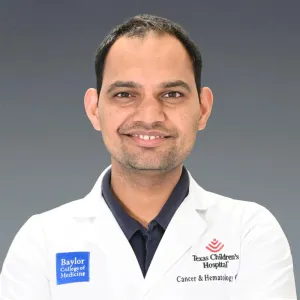Shubham Singh, PhD
- Cancer and Blood Disorders

Assistant Professor, Department of Pediatrics, Division of Hematology-Oncology, Baylor College of Medicine
Assistant Professor, Department of Neurology, Baylor College of Medicine
Office location:
1102 Bates Avenue
Houston, TX 77030
Get to know Shubham Singh, PhD
Education
| School | Education | Degree | Year |
|---|---|---|---|
| Memorial Sloan Kettering Cancer Center | Post-doctoral Fellowship | Neurobiology – Lipid Metabolism | 2025 |
| Harvard School of Public Health | Post-doctoral Fellowship | Neurobiology – Lipid Metabolism | 2022 |
| Indian Institute of Science Education and Research - Pune | PhD | Doctor of Philosophy, Biological Sciences | 2021 |
| Indian Institute of Science Education and Research - Pune | Masters | Master of Science, Biological Sciences | 2017 |
Honors and awards
- 2022
-
Human Frontier Science Postdoctoral Fellowship
- 2021
-
Bluefield Postdoctoral Fellowship
- 2021
-
Sun Pharma Science Scholar Award
- 2021
-
DST-AWSAR Award
- 2012
-
DBT Biology Scholarship Award
* Texas Children’s Hospital physicians’ licenses and credentials are reviewed prior to practicing at any of our facilities. Sections titled From the Doctor, Professional Organizations and Publications were provided by the physician’s office and were not verified by Texas Children’s Hospital.
Research Area:
Genetics and Genomics
Dr. Singh's research focuses on lipid metabolism and signaling in mammalian physiology. Lipids are fundamental to cellular compartmentalization, signaling, energy production and metabolism. As life evolved, lipid diversity increased requiring cells to develop precise metabolic and transport mechanisms. Dysregulation of lipid homeostasis is linked to over 100 human diseases including obesity, lipodystrophy, neurodegeneration, and cancer. However, the fundamental mechanisms of lipid homeostasis and how its disruption leads to diseases remain poorly understood. He is particularly interested in understanding mechanisms of lipid homeostasis in context of development and maintenance of central nervous system (where lipids contribute ~50% of the dry mass). He aims to identify and elucidate mechanisms through which aberrant lipid metabolism/signaling contribute to pathophysiology of neurodegeneration and brain tumors
Research interests
- Lipid Metabolism
- Chemical Biology
- Neurobiology
- Cell Biology
- Genetics